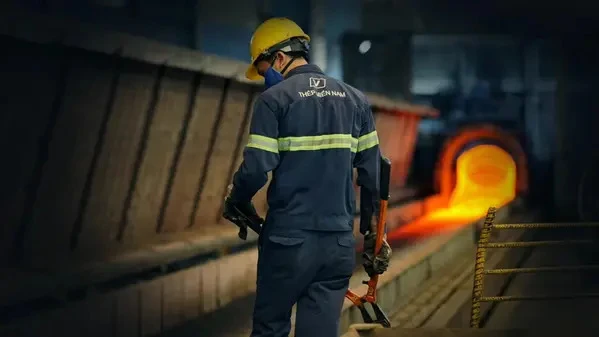WNAM REPORT: Vietnam’s steel industry is facing fiercer competition from foreign rivals as imported products, particularly those from China, have flooded the domestic market, raising fears of market saturation. Industry experts have warned that without prompt action, domestic producers could be pushed to the brink.
According to the Vietnam Steel Association (VSA), domestic steel production capacity is 23 million tonnes of crude steel and 38.6 million tonnes of finished steel products annually. Despite a projected 7% increase in finished steel production to 30 million tonnes this year, challenges remain for domestic producers.
Recent customs data revealed a surge in hot-rolled coil (HRC) imports, with China accounting for a 73% of Vietnam’s HRC imports in the first four months of this year. Some 2.9 million tonnes of steel were brought into the market, more than double the volume from the same period in 2023. This imported volume has led to a significant decline in market share for domestic giants like Formosa and Hoa Phat, plummeting from 45% in 2021 to just 30% in 2023.
In April alone, the import volume of HRC into Vietnam reached 890,000 tonnes, 1.5 times higher than the domestic production volume. Of this, 71% was imported from China, according to VSA Chairman Nghiem Xuan Da.
The VSA has issued an urgent call to authorities, advocating for stricter technical standards and quality management measures to stem the tide of sub-standard steel products being sold into the market.
The Ministry of Industry and Trade has responded by launching investigations into anti-dumping measures for galvanised steel and HRC from China, India, and the Republic of Korea.
To safeguard the industry’s future, the ministry is building a comprehensive steel industry development strategy until 2030, with a vision to 2050, which will be linked with specific policies aimed at promoting green and sustainable growth of the steel sector.


